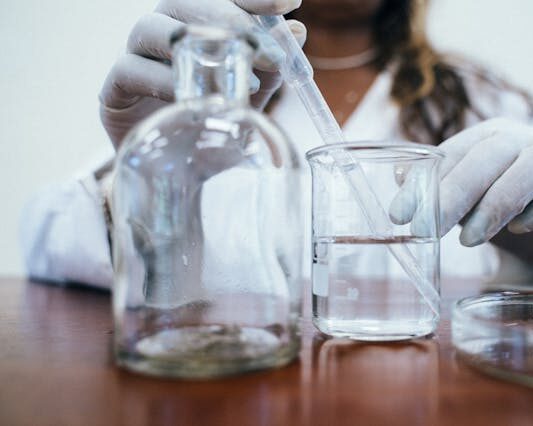Water is an essential resource for many businesses, whether it’s for manufacturing processes, cooling systems, cleaning, or even as part of the product itself. However, poor water quality or inadequate management can lead to costly consequences, ranging from equipment damage to health hazards and compliance issues. This is where regular water testing comes into play. By investing in water testing, businesses can save significant amounts of money, enhance operational efficiency, and safeguard their long-term viability.
Here’s how water testing can save your business money:
1. Preventing Equipment Damage and Maintenance Costs
Water systems, such as boilers, cooling towers, and pipes, are crucial to many operations. Water quality directly affects their performance and longevity. If the water is too hard (high in minerals like calcium and magnesium), it can lead to scale buildup in pipes and machinery. Similarly, high levels of chlorine or other corrosive substances can cause rust and erosion.
By regularly testing and treating the water, businesses can prevent the buildup of scale, corrosion, and other forms of damage. This reduces the need for costly repairs and extends the lifespan of expensive equipment. Regular water testing allows businesses to spot issues early and take preventive measures before they lead to breakdowns or costly maintenance.
2. Improving Operational Efficiency
Water is often used in manufacturing processes, from cooling machinery to mixing ingredients. If the water quality is subpar, it can affect the efficiency of these processes. For example, high levels of sediment or minerals can clog filters and pipes, reducing flow rates and energy efficiency.
Water testing helps ensure that the water used in production is of the right quality, reducing disruptions and ensuring that processes run smoothly. With properly maintained water systems, businesses can maintain optimal production rates without the costly downtime caused by clogged equipment or inefficient systems.
3. Avoiding Regulatory Fines and Legal Issues
In many industries, water quality is regulated by government standards. For example, food and beverage manufacturers, healthcare facilities, and hotels must meet specific water quality standards to ensure the health and safety of their customers. Failure to comply with these regulations can result in costly fines, legal liabilities, and even damage to a business’s reputation.
Regular water testing ensures that your business remains compliant with local, state, and federal water quality standards. This proactive approach helps avoid fines, legal costs, and potential shutdowns, saving your business money in the long run.
4. Enhancing Product Quality and Safety
For businesses in industries like food and beverage manufacturing, pharmaceuticals, and cosmetics, water is a critical ingredient in product production. Contaminated water can lead to unsafe products, recalls, or even public health hazards, which can have devastating financial consequences.
By regularly testing water for contaminants such as bacteria, heavy metals, or chemical pollutants, businesses can ensure that the water used in production is safe for consumption or use. This prevents costly product recalls, potential lawsuits, and damage to brand reputation. High-quality water results in higher-quality products, which in turn boosts customer satisfaction and loyalty, ultimately contributing to increased revenue.
5. Reducing Energy Consumption
Water is often used in cooling systems in industries such as manufacturing and data centers. Over time, untreated water can cause fouling in cooling towers and heat exchangers, leading to reduced efficiency and higher energy consumption. This increase in energy costs can be substantial over time.
Regular water testing and treatment can help prevent fouling and maintain the efficiency of cooling systems, reducing the energy required to keep equipment at the desired temperature. This leads to lower energy bills and a more environmentally friendly operation, which can also improve your company’s sustainability credentials and appeal to eco-conscious customers.
6. Preventing Water Wastage
Water is a valuable resource, and inefficiency in water usage can be costly. Contaminants in the water can lead to leaks or overflows in systems that are meant to handle specific volumes of water. Additionally, untreated water may need to be disposed of or treated at additional costs.
Regular water testing helps ensure that water is being used efficiently in your business. By identifying issues like leaks or system inefficiencies, businesses can optimize water use and minimize waste. This reduces both water bills and the associated costs of waste disposal, contributing to overall cost savings.
7. Preventing Health-Related Costs
If water used in a business, particularly in food preparation or healthcare, is contaminated, it can lead to serious health issues for employees or customers. Health-related issues such as waterborne diseases, contamination, or allergic reactions can lead to expensive medical treatments, legal claims, and a loss of consumer trust.
Testing water regularly for pathogens and pollutants ensures the water is safe and healthy for its intended use. Not only does this reduce the risk of health-related expenses, but it also demonstrates a commitment to safety and quality, further protecting your business from lawsuits and damage to its reputation.
8. Long-Term Cost Savings
Ultimately, investing in regular water testing is a proactive strategy that can lead to long-term savings. It’s far less expensive to identify and address water quality issues before they escalate into larger problems. Whether it’s reducing the need for expensive repairs, preventing fines, or ensuring your products are safe, water testing provides an essential safeguard that protects your business’s bottom line.
Conclusion
Water testing is a small investment with the potential to deliver significant returns in terms of cost savings, operational efficiency, and long-term sustainability. By regularly testing water quality, businesses can prevent costly repairs, reduce downtime, avoid fines, ensure product safety, and ultimately enhance their profitability. In today’s competitive business environment, maintaining high water quality is not just a good practice—it’s a smart financial decision that can help businesses thrive in the face of rising operational costs and regulatory scrutiny.


Leave a Reply